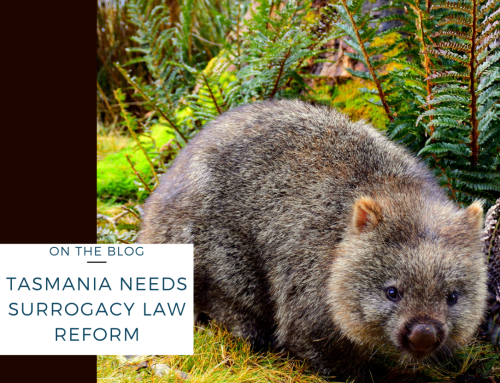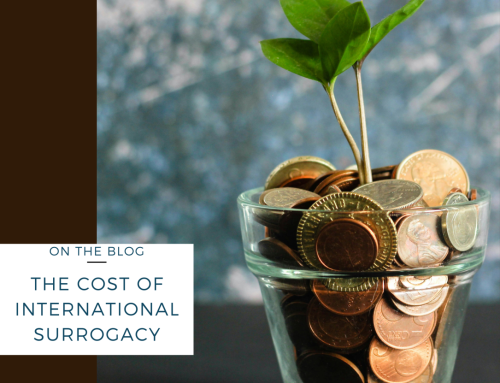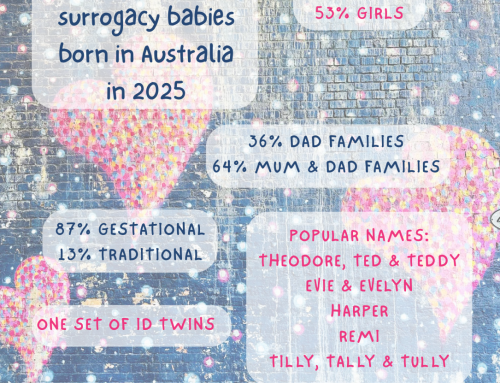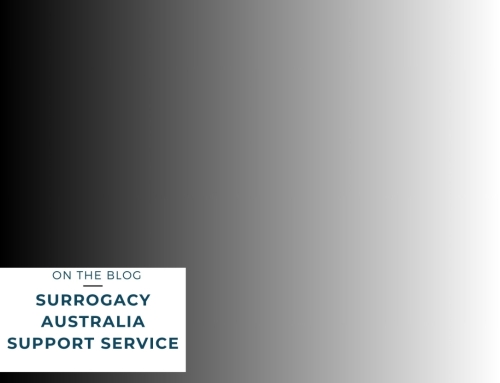A surrogacy arrangement necessarily involves people sharing experiences with each other that would otherwise be reserved for the most intimate of relationships. Besides discussion about your views on pregnancy termination and whether the surrogate will drink alcohol during pregnancy, there’s also discussion about the intimate details of the surrogate’s menstrual cycle and the state of her uterus.
A surrogate retains her bodily autonomy even when she is pregnant with a baby for someone else. She does not waive all her rights to autonomy, or privacy, simply by offering to be a surrogate. Most surrogates will be happy to share and discuss openly with her intended parents any information about the pregnancy and baby. But even when she provides her consent to sharing some information, it should never be taken to be a sweeping consent to sharing all information.
As with every major issue in surrogacy, the team should discuss the topic of information-sharing and reach agreements about what information might be shared, how it is to be shared, and whether any team member wishes for some information to remain private.
Many IVF clinics are challenged by the issue of privacy and information-sharing in surrogacy teams. The staff are used to sharing information about menstrual cycles, treatment and pregnancy with the woman they are treating. In surrogacy arrangements, the patients are also the intended parents, and the team and staff need to discuss how information about the surrogate’s menstrual cycles, treatment and pregnancy can and should be shared with the intended parents. Unfortunately, they can get it wrong – calling the intended parents with the results of tests done on the surrogate, and not asking the surrogate for permission to do so.
It is important to reach agreements about what is shared, and how. To get it right, you might like to consider the following as a guide:
- The surrogate maintains a right to privacy, and all information about her body, treatment she is receiving, her medical history and test results are her private information.
. - The surrogate should be provided with access to all information about anything to do with her body, health and treatment and results.
. - If there is information of interest to the intended parents, the surrogate must provide her specific consent to that information being conveyed to the intended parents, or conveying that information herself.
. - Unless the surrogate has provided specific consent to information being shared, then it remains her private information and should not be shared.
. - When providing consent to sharing information about the surrogate’s body, health, treatment and test results with the intended parents, consideration should be given to whether the information is about the embryo, foetus or pregnancy, whether it is necessary or helpful for the intended parents to know, and whether they are able to understand the information.
. - Intended parents are not medical professionals and are not bound by professional or ethical standards of confidentiality. It is not appropriate that a surrogate’s full medical history or records are provided to the intended parents simply because she is carrying their baby. She does not waive her basic human rights to privacy, dignity and respect.
. - There should be no carte blanche consent on a surrogate’s private information being provided to the intended parents in any circumstances.
. - Where information is being shared that is difficult to understand or causes confusion or difficulties for and between the parties, counselling should be sought from an independent counsellor.
You can find out more about setting expectations in surrogacy journeys, and how a hospital might manage a surrogacy pregnancy and birth.
Surrogacy stories are often shared in the media – the parties and any professionals involved should understand the legal limitations on sharing identifying information publicly or with the media.
Need some help navigating the process or talking to the hospital or clinic? You can get in touch with me below. You can also find more information in the Blog, and by listening to the Surrogacy Podcast.








